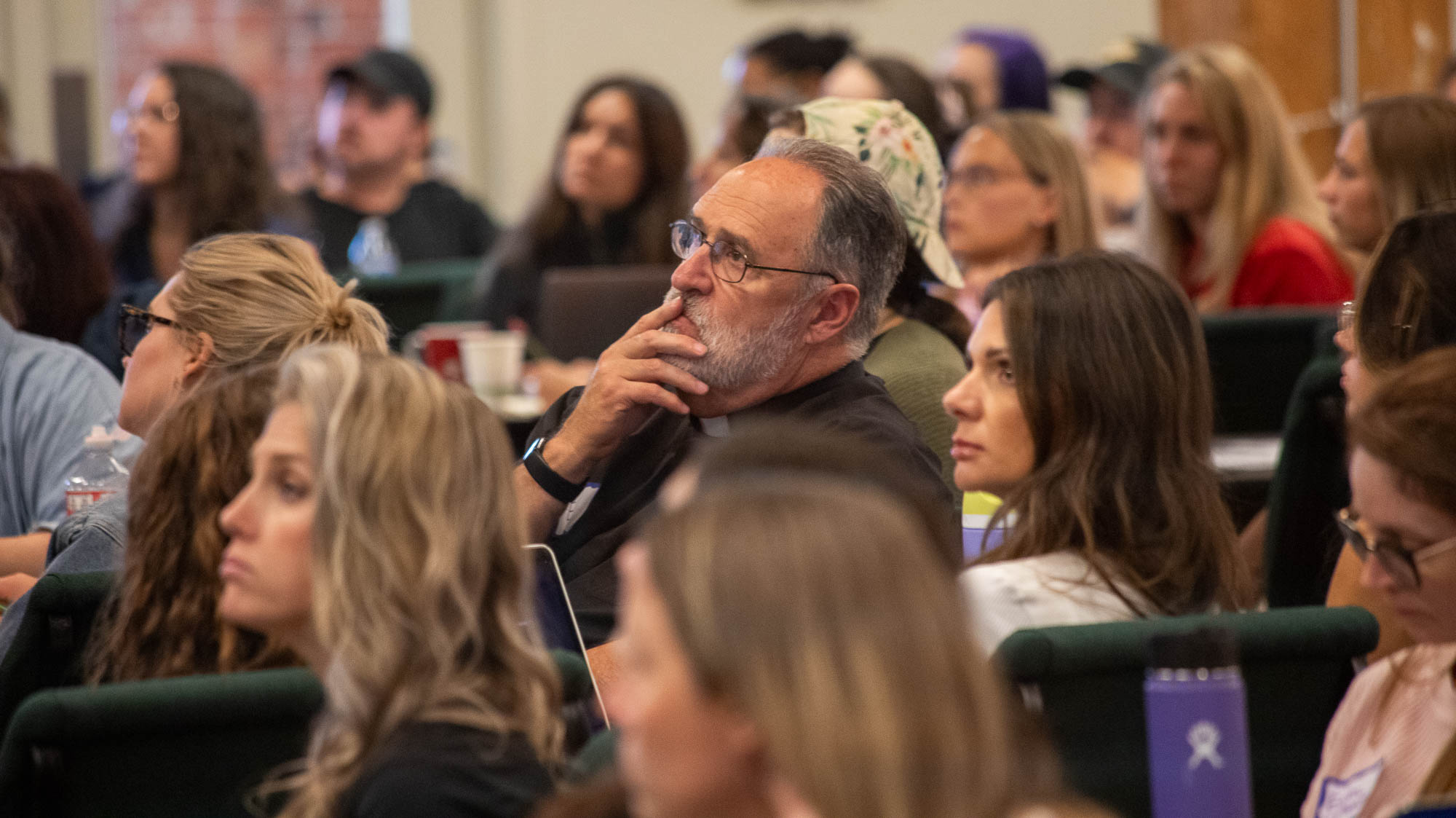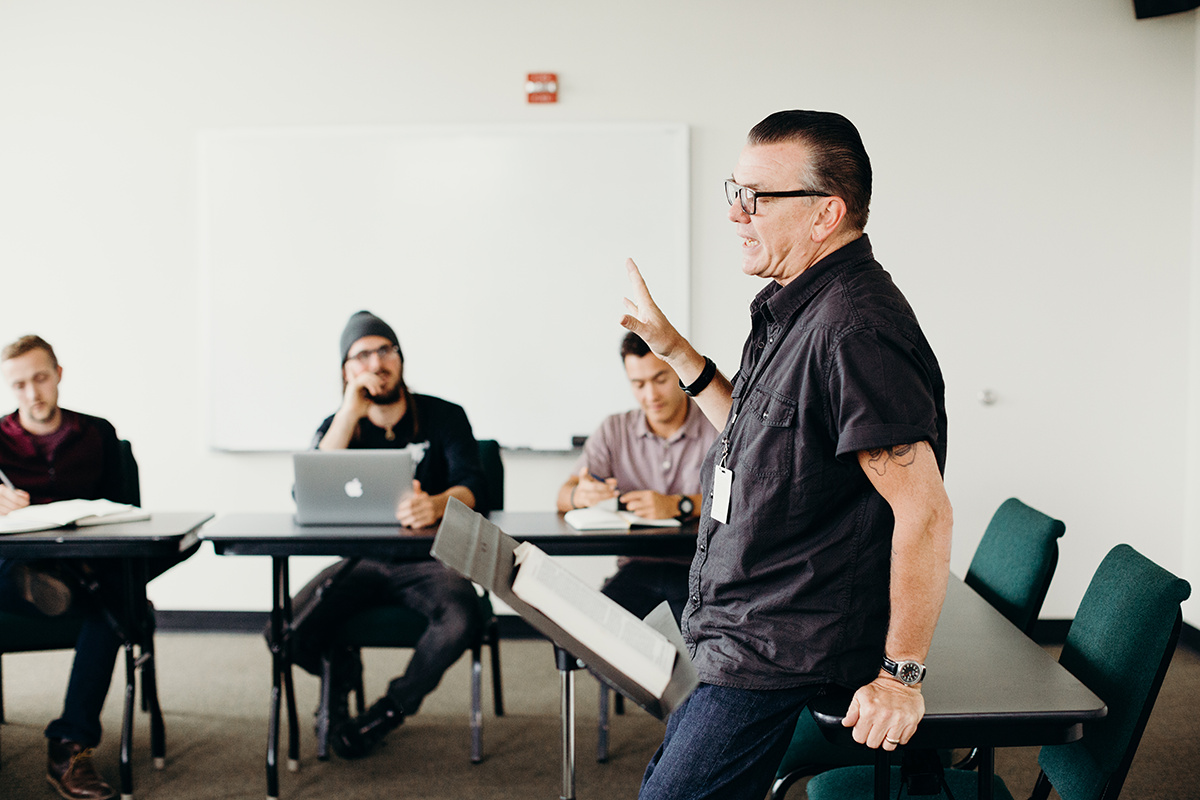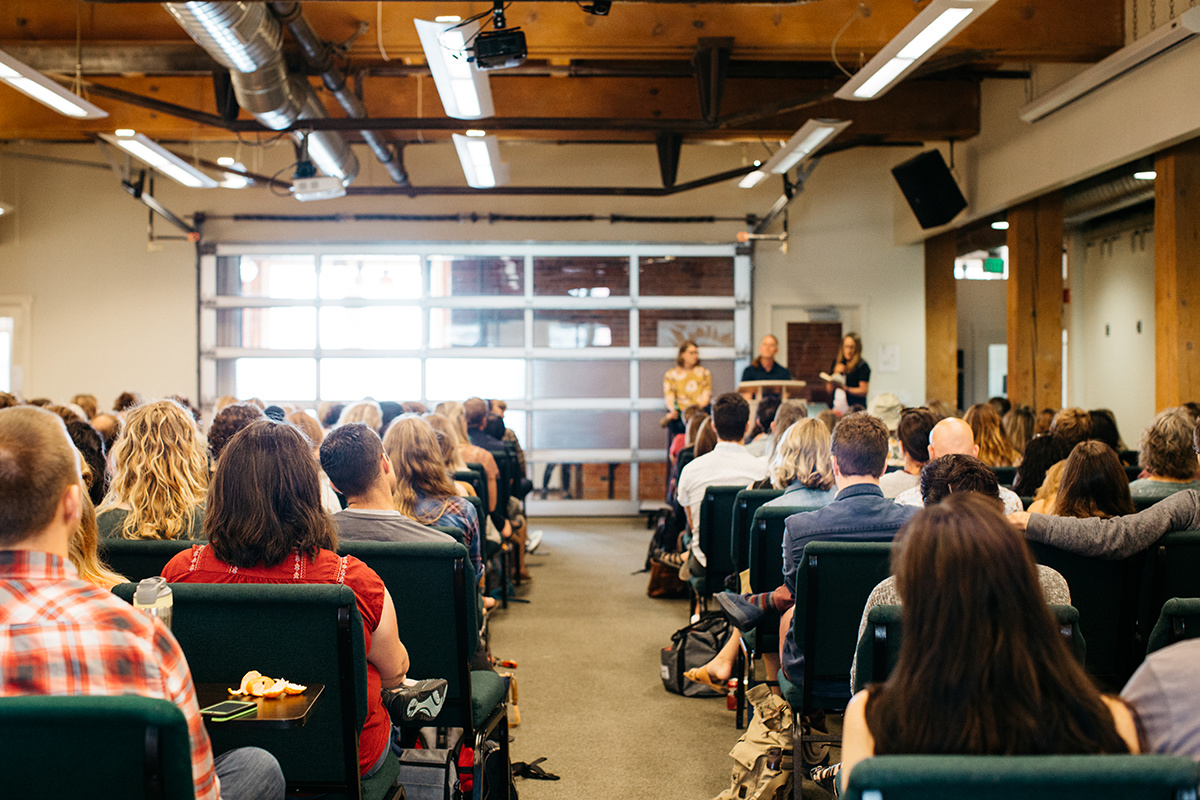Master of Arts in Theology & Culture: Community Development
Foster communities that exemplify beauty, justice, and belonging
2 years to complete
39 credit hours of coursework
2 residency gatherings
The MATC: Community Development Specialization is designed for people who feel called to be present in the places they’ve been planted—people who believe in change that emerges from the ground up, not the top down. This program is for organizers, pastors, nonprofit leaders, and engaged neighbors who want to deepen their impact through the integration of theology, justice, and relational practice.
Over two years, you’ll learn to discern the movement of God in a particular place and participate in that movement by cultivating beauty, equity, and collective healing in your community.
Whether you find yourself serving an urban neighborhood, rural nonprofit, international NGO, or faith-rooted initiative, this specialization offers the tools, theological grounding, and spiritual formation needed to guide community transformation with integrity and imagination.
Begin your Application
Theology for the Work of Neighboring
Community development at The Seattle School is not a formula—it’s a vocation rooted in listening, humility, and mutual transformation. It’s about acknowledging that deep listening requires courage, but is necessary for transformative relationships. It’s about creating more space for moments of beauty and justice to rise together.
In this program, you’ll explore questions like: What does it mean to love a place—and the people in it—as God does? How can theology guide grassroots change without replicating harm? What’s the relationship between beauty, justice, and lasting transformation?
Through coursework, lived experience, and mentorship, you’ll develop a contextual theology that reflects your values, deepens your vocational clarity, and equips you to lead change that lasts.

What You'll Learn
By the end of the MATC: Community Development Specialization, you will be equipped to:
- Practice deep listening and spiritual discernment within complex community ecosystems
- Engage in collaborative models of development that resist saviorism and center local wisdom
- Articulate a theology of place, justice, and belonging that shapes how you lead and serve
- Guide processes of social innovation, healing, and change at systemic and grassroots levels
- Apply theology to real-world community work through one travel course, apprenticeship, and a capstone project
“True collaborative change work happens at the intersection of beauty, justice, and community.”
Ron Ruthruff, DMin
Associate Professor of Theology & Culture Meet Our Core Faculty

Program Highlights
- Contextual apprenticeship where you lead change in your own community or organization
- Capstone Integrative Portfolio connecting theology, place, and practice
- Optional global and domestic immersion courses guided by local leaders in community development
Curriculum
The MATC: Community Development Specialization equips students with a strong foundation in theology and cultural analysis, practical skills for community engagement, and the courage to bring faithful presence into their own contexts—whether neighborhoods, organizations, or movements—so they can lead with wisdom, hope, and transformative impact.
Foundational Formation
Begin with the MATC’s Common Curriculum, where you’ll study theology, psychology, biblical studies, and cultural analysis alongside a cohort of future pastors, artists, and therapists.
Core Theological Learning
Advance through courses in biblical interpretation, spiritual formation, constructive theology, and leadership—designed to help you think theologically and act locally.
Specialized Community Development Coursework
In your second year, you’ll engage in three courses focused on:
- Collaborative community building
- Deep listening and ethical presence
- Contextual conversations and systemic engagement
- Assignments throughout the program draw from your lived context, helping you apply learning to the neighborhood, organization, or movement you’re already part of—or one you’re preparing to enter.
“I felt like [the Common Curriculum] was a good way to learn about each other, practice active listening, and dive deep into our cultural contexts.”
MATC Student Explore MATC Voices

Bring Theology to the Place You Call Home
The MATC: Community Development Specialization is for those who want to show up fully in their communities with courage, wisdom, and hope. If you believe that small, faithful acts of presence can lead to real change—this is your path. Request more information or apply today, and we’ll send you everything you need to know in order to begin your journey.
